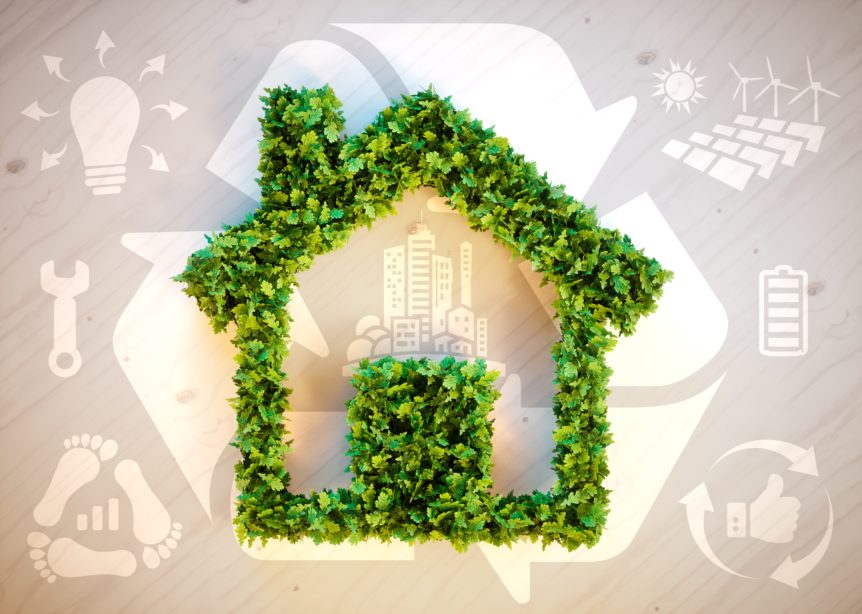News – 30 May 2022
Net zero carbon by 2050 is a headline that we have become used to seeing. Climate change is a complex global issue and it can seem difficult to understand what we individually need to do to achieve it. Key to becoming net zero we need to change our behaviours. Our behaviours don’t have to be large statements, even the smallest of changes made collectively in a community can be impactful on our way to net zero.
Here we look at some small, achievable changes that you can make to live more sustainably.
Energy (21% of UK Carbon emissions come from energy)
With the energy price cap frequently in the news, energy prices and how to reduce consumption is on everyone’s minds.
- Smart meters – if you haven’t already got one, now is the time to book an appointment with your energy provider to get one installed. They are a great visible energy management tool to aid you to reduce your energy bills.
- Vampire devices – these are devices that still consume energy when plugged in. So be mindful what you’re leaving plugged in all the time, for example phone chargers, games consoles, televisions, microwaves, DVD players, computers and traditional lamps all need unplugging. It’s thought that as much as 75% of the energy consumption of these appliances is used when they are just plugged in and not being used. It may not make a huge difference on your individual energy bill, but imagine the impact of an entire population leaving their devices plugged in.
- Whilst the markets are as they are, changing energy providers right now is being discouraged, but if the market recovers be mindful to source renewable energy.
- Work with us to improve energy efficiency. We have a target to get all properties to Band C by 2028! In order to do this, we have to undertake retrofit assessments/Energy Performance Certificate surveys. If we contact you to say we need to do this, please try to accommodate us to do this if you can, as these assessments help us secure funding and plan our retrofit works.
Shopping
With the cost of living rising it’s a great opportunity to review how we purchase things where its more economical and better for the environment.
- Food: The lovefoodhatewaste.com website offers advice about how to prevent food waste and therefore not waste money too.
- Clothing: loveyourclothes.org offers advice about how to buy mindfully as well as caring for, repairing and upcycling our clothes and what to do with unwanted clothing.
- Furniture: we’re all aware of buying and selling sites where we can reuse furniture, but there are also more local community-based projects that collect unwanted furniture and resell at affordable prices. So next time you’ve an unwanted piece of furniture or are in the market for something, search reuse-network.org.uk/donate-items/#/ for your local community project.
Transport (27 % of UK carbon emissions come from transport)
- It’s easy to say drive less, but many of us are used to the convenience of a car. School drop offs and work start times don’t always accommodate for the additional time we may need to take alternative forms of transport. If a like-for-like swap can’t be achieved, then think about how you could drive less. Is there one day a week that you can commit to not using the car at all? Can you use the car the same amount of times but less distance by parking up earlier and walking some of the way?
- Cycling is a great alternative to the car as after the initial outlay of the bike purchase it really is an inexpensive way to travel and of course emits no carbon emissions. But it doesn’t stop there, cycling is a great way to get exercise.
- Alternatively, you could hire an electric bike which are great for meeting friends, commuting or even just having fun. In Milton Keynes there are two schemes which run, Santander Cycles and Lime (download the app “Lime – Your Ride Anytime”.
Recycling
- It can still be really difficult to buy items that aren’t over-packaged; some would say don’t buy them, but it can be difficult to find an alternative that is packed sustainably. We expect to see changes in packaging due to the introduction of the packaging tax this year. Retailers do listen to consumers, so contacting retailers about excessive packaging (with photos of examples) can make a difference.
- If you have to buy items with excessive packaging, then look out for the on-pack recycling symbols and make use of all of recycling services that are on offer or see if there’s an innovative way to reuse the packaging.



